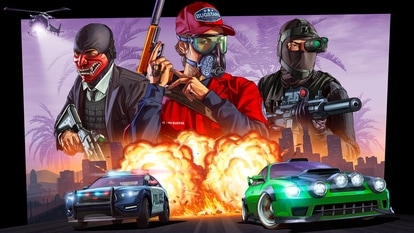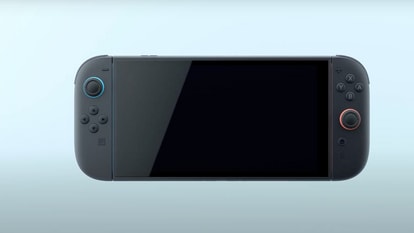Stop the schadenfreude over bloated tech layoffs
Assassin’s Creed developer Ubisoft offered pep talks on work ethic. That pushed all the wrong buttons.

Video games are increasingly enmeshed in the business cycle of Big Tech. After the pandemic boom, profit warnings are piling up, from Assassin's Creed developer Ubisoft Entertainment SA to Frontier Developments Plc, and industry layoffs are mounting.
Yet unlike the expressions of shock and schadenfreude seen online as Alphabet Inc. workers experience their first layoffs – complete with the stereotyped imagery of entitled Gen-Zers losing access to the corporate tiki bar – what's happening in gaming exposes a far more dystopian vision of the virtual workplace. A threatened strike this week at Ubisoft in France gives a glimpse of battles to come.
Game developers are in the hit-making business, and that means they've long been exposed to job insecurity and volatility as game projects are stopped and started. And unlike apps relying on user-generated content, the paid staff in gaming are the ones generating immersive, detailed worlds to increasingly high-stakes deadlines – meaning brutal 60-to-100-hour work weeks known as “crunch.”
Shifting to remote work during the pandemic kept people employed but led to production delays and in some cases worsened the work-life balance stresses. While the gaming boom led to wage increases or bonuses for most of those surveyed by the International Game Developers' Association, one-third reported working overtime for no extra pay. The push for unionization has gathered pace, along with experiments such as a four-day work week, in an industry where 79% are under-40.
Now that push is running into the harsh reality of slowing demand, which Ubisoft has described as a “surprising” development for new games it had expected to fly off the shelves — like Mario Rabbids 2 and Just Dance 2023. The company recently announced the cancellation of several titles, forecasting an operating loss for the current fiscal year. It told staff it was up to them to meet new deadlines while cutting costs. “The ball is in your court,” CEO Yves Guillemot said in an all-hands missive.
What makes this message so tone-deaf – Guillemot subsequently apologized – is that it effectively exonerates management for some very bad decisions. Strategically, the company has been chasing all sorts of dodgy trends, from battle-royale games — of which it reportedly had a dozen in development at one point – to non-fungible tokens, a market that's since cratered. Pinning one's hopes on Mario Rabbids 2 is a puzzling move for a company with such a rich stable of franchises, such as Assassin's Creed and Far Cry.
Whatever the cause, Ubisoft looks bloated as a result: Sales per employee stood at about 103,000 euros ($112,000) in its latest full-year results, down 21% since 2016. But the whole Ubisoft model, with dozens of studios spread across numerous countries, was also predicated on management getting the most out of its headcount. But it's not. A former Ubisoft developer said repeated delays in the game Skull & Bones reportedly looked like a classic case of mismanagement, even with Singapore government subsidies.
Unlike a post-Fordist vision of the future, maybe the truth is that video games can't quite escape the shadow of the assembly line: As Bloomberg's Jason Schreier has pointed out, one video-game worker has a long chain of associated workers that can't easily work at different speeds. Which is why the four-day week — one of the demands proposed by workers calling for the Ubisoft strike — is an idea worth exploring. Some companies trialing it have reported success, with increased productivity and lower risk of burnout, even if it's not for everyone.
And at a time when longer life expectancy and stretched government budgets have led to increased demands on future generations to work longer, it will also be important to give a more positive spin to the daily grind. Work-ethic pep talks aren't what's needed for a world where work and leisure are blurred and where upskilling will need to be more widespread.
But as gaming increasingly becomes part of conglomerates' stables, with Microsoft Corp. tilting at Activision Blizzard Inc., the fight over a fairer division of the spoils isn't likely to stop.
Catch all the Latest Tech News, Mobile News, Laptop News, Gaming news, Wearables News , How To News, also keep up with us on Whatsapp channel,Twitter, Facebook, Google News, and Instagram. For our latest videos, subscribe to our YouTube channel.






























